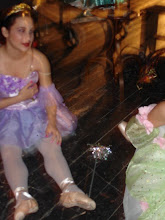I’m glad that we started our discussion today by asking ourselves what work reading Holes asked from us. I enjoyed this book the first time I read it, somewhere in the middle school years, and I enjoyed it enough to read it in an afternoon this time around. But I really didn’t really develop any enthusiastic opinions about the text and was sort of at a loss for words when we were asked to consider what the book asked of its readers. I initially wrote that I found it difficult to empathize with Stanley since Sachar’s creates such a strong voice that I attribute to the main character who is a young boy at a correctional camp filled with more young boys. Some people touched on this a bit in class today as well.
But when we continued with the discussions I realized right away the main thing the book asks of me as a reader. The book is laid out so neatly and wraps up pat. It’s something that bothers me all the time with scripts. I guess I approached the book with too much superiority and accepted its convenient coincidences without a second thought. I’d forgot children’s books could ask anything of me as a reader. And when Earthsea was mentioned during our discussion, I immediately saw how Holes, although it writing sucks us in as readers and the book easily entertains, was clearly lacking something Earthsea easily manages; inquiry. The books don’t necessarily leave me pondering life or (in the case of most children’s books) appreciating the lessons learned.
I appreciated Marcus’ comment about the biblical allusions in the book, and I guess this gives the book more depth that was beyond me in my initial readings. But the easiness of the novel (in storyline rather than reading level) are still somewhat bothersome. I understand that book of these kinds are necessary for readers, especially young readers who need to remember that reading is for pleasure as well as for learning and growing.
Purpose for Imaginative Literature
15 years ago
